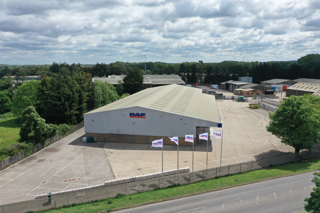By Ryan Naughton, head of B2B connected car and European relations at the AA
Fleet management is no longer business as usual and nor has it been for some time.
Economic pressures are biting, supply chains are still in brittle shape and the move towards decarbonisation is, for many fleets, fast accelerating – a little too fast, perhaps, for some businesses.
According to the Association of Fleet Professionals’ (AFP) State of the Nation report for 2025, fleet budgets remain tight, with many managers, quite understandably, still feeling the pinch from inflation and rising costs. At the same time, the report noted, a skills shortage looms large, as experienced fleet professionals retire faster than new talent can fill the gap.
This view is echoed by the BVRLA’s annual Industry Outlook report, which saw 64% of fleets claim cost cutting as their number one strategic priority for 2025.
And yet with challenge (as always) comes opportunity. Our latest Yellow Paper – a vital guide to navigating today’s complex landscape with confidence – aims to tap into the opportunities at the heart of this transformation.
Driving Intelligent Fleet Management examines the role AI is playing in de-risking fleets. Let’s dive into why now it’s time to embrace the shift ahead.
The rise of artificial intelligence
The rise of AI is perfectly timed amid the complexity of current conditions, and the role that technology can play in easing the punch has never been more crucial.
Research by Webfleet has highlighted that 91% of fleet managers expect to increase their investment in digital fleet solutions over the next five years; the BVRLA says 23% of fleets will invest in fleet management software this year.
The same research found that more than half (52%) of the fleet managers surveyed identified reducing operational costs and improving efficiency as key drivers for investing more in digital solutions – which leads us to another key change.
Fleet management is no longer about waiting for breakdowns
The traditional reactive approach to fleet management - waiting for a vehicle to break down before acting - is no longer viable.
It’s about building smarter, proactive scope for change and improvement into business operations from the get-go.
Real-time data and AI now enable businesses to plan maintenance, reduce vehicle downtime, and boost driver safety like never before.
No longer do fleets need to rely on reactive fixes; AI-driven tools help them anticipate peaks in demand, plan maintenance around vehicle health data, and reduce accident-related downtime.
Telematics data, used correctly and intuitively, can offer a real-time view into a range of the key areas central to overall fleet performance. These include vehicle location, driver behaviour and vehicle health.
Their role is to help managers plan ahead, identifying servicing requirements before breakdown takes place to reduce something all fleet managers know costs businesses millions of pounds every year – we’re talking vehicle off-road time, or VOR, of course.
Lessons from our fleet
Our own fleet has been a catalyst for investing to unlock the full potential of cutting-edge data science and AI.
The AA’s access to datasets from both 10 million vehicles and 120 years supporting drivers enables us to turn these insights into actionable recommendations that will help businesses with their decision making, which is why we’ve been testing our own homegrown AI tool, Vixa Pro, on our fleet.
The results have been pretty incredible, too – in fact, receiving proactive data on our vehicle health has reduced VOR time by roughly 40% in the past nine months.
These insights, working hand in hand with our driver training expertise, have given us the power to spot potential faults early and plan parts orders ahead, slashing repair cycle times and VOR in one.
More of our vans are on the road, working harder and for longer – and all thanks to the smart use of data.
As a result, we don’t hesitate to recommend AI to others – that’s partly what we’re saying in our Yellow Paper. We’ve seen first-hand the impact they can make.


















Login to comment
Comments
No comments have been made yet.